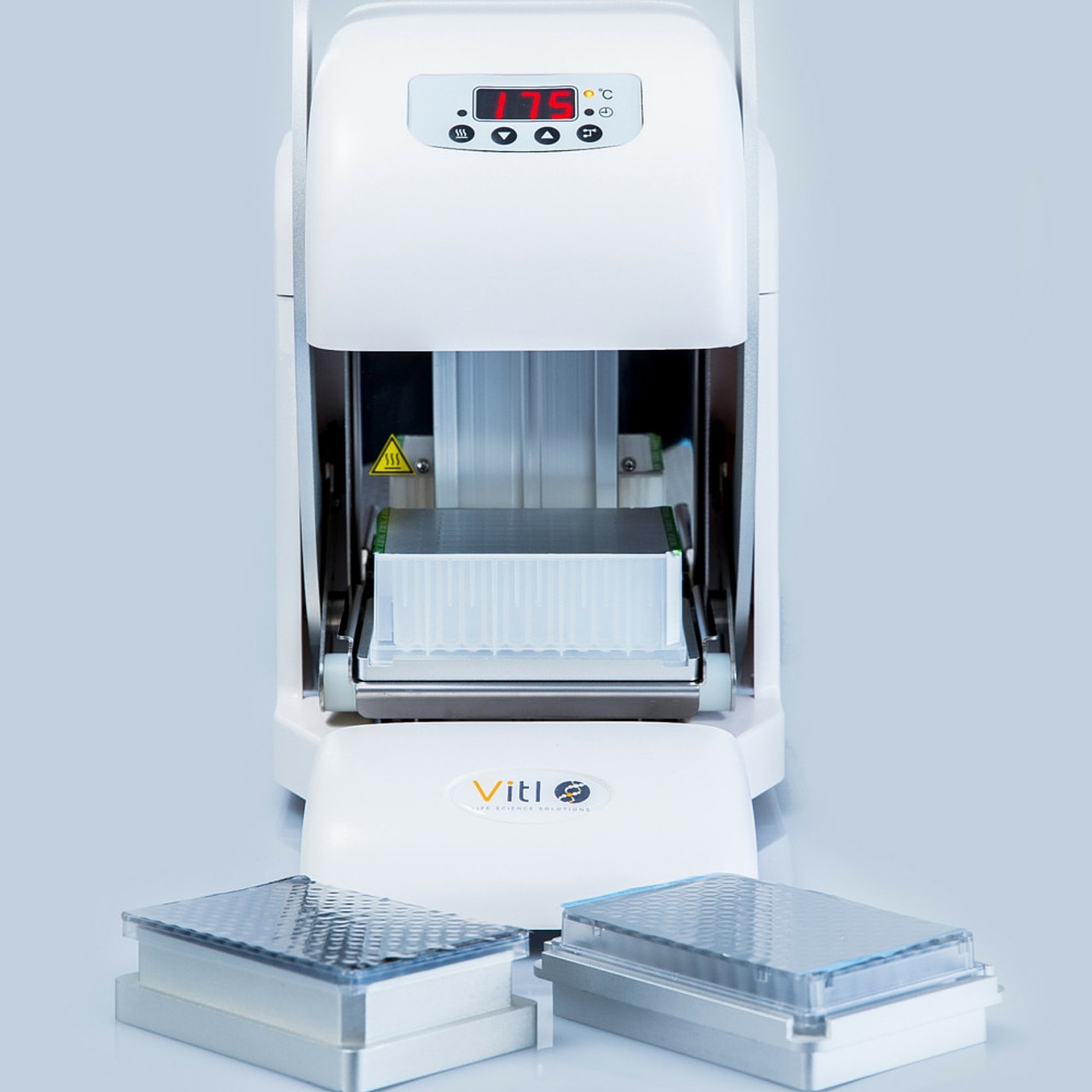Samples that are stored in tubes are easy to protect and preserve. Simply close the screw cap or snap cap to seal out impurities and prevent evaporation.
Samples that are stored in multi-well plates like PCR plates and deep well plates require a different type of closure.
A silicone sealing mat is a great short-term plate seal.
For short term protection, a snug fitting silicone mat with dimensions matched to the shape of the plate wells (either round wells or square wells) will do just fine.
Some silicone plate seals come pre-scored to allow their contents to be extracted using a pipette tip without compromising the surrounding wells.
![]()
You need an adhesive backed seal for extreme temperatures.
When a sample is subjected to periods of temperature extremes, such as long-term storage in the -80 freezer or running a PCR assay, an adhesive seal of some sort is needed.
Because it is inevitable that some liquid from the samples will come into contact with the underside of the seal, the seal adhesive must be made from inert material that will not contaminate the sample.

The adhesive must also be durable and not disintegrate or crumble into the sample wells too.
When sealing PCR plates for PCR or qPCR, the seal must be optically clear to allow the laser to read the contents of each well.
When is a heat seal better than a hand applied seal?
With plenty of time and practice, any lab tech can place an adhesive plate seal properly to cover a PCR plate or deep well plate.
Failure to lay the seal correctly will expose the contents to contamination and evaporation risks.
In the same way a robotic liquid handler can reduce or eliminate inconsistencies, using a heat sealer together with heat activated seals provides a more reliable and secure seal.
The Variable Temperature Sealer by Vitl takes the guesswork out of sealing plates with an ergonomic design that takes under two seconds to perfectly seal a variety of plates.

When the mechanical arm is lowered, the plate is raised to meet the heating element, ensuring a smooth and accurate heat seal placement every time.
The best heat sealer with the most heat seals
ViTL offers seven variations of foil and film heat seals ranging from 20 to 105 microns thick, in optically clear, pierceable and peelable formats.
Each foil or film heat seal is one-side color-coded, and two variations feature a helpful “This side up” marking, to make it impossible to accidentally glue the heat seal to the heat sealer.
Choose a ViTL foil or film heat seal with thermal stability as low as -200C or one with 110C top temperature range with no concern for residue or breakdown over time.
Looking for DMSO safe heat seals? ViTL and Stellar Scientific has them!

Whether your lab is scaling up and requires a faster way to prepare samples;
Stocking away piles of deep well plates for future evaluation;
Or looking for a more reliable way to protect samples, the ViTL family of heat seals and sealers are an affordable option


